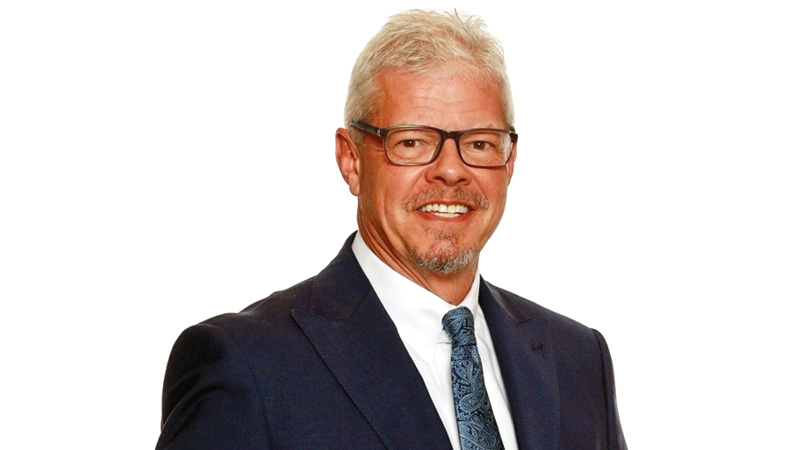Jeter named as Ohio Dental Association president
Published 5:00 am Friday, September 27, 2024

- Dr. Hal Jeter, of South Point, was named as the new president of the Ohio Dental Association on Sept. 13. (Submitted Photo)
By Terry L. Hapney, Jr.
The Ironton Tribune
The new president of the Ohio Dental Association is South Point’s Dr. Hal Jeter.
The organization’s membership and leadership elected and installed Jeter as president on Sept. 13 during the ODA’s House of Delegates meeting.
ODA executive director David J. Owsiany said Jeter “has provided exemplary leadership throughout his career as a dentist and will lead the ODA with great vision and skill over the next year.”
Jeter said it is a “rewarding experience to be able to give back to the community.”
“I’ve always felt like no one ever achieves anything in life alone,” he said. “We always have a community of people around us and we should always give back. This is my opportunity to do that.”
As president of ODA, Jeter will serve on the ODA executive committee that oversees the management of the association throughout the next year. Jeter will continue efforts of past presidents to serve the profession of dentistry and residents of Ohio through advocacy, legislative efforts and oral health public service programs.
Jeter, a general dentist who has practiced in South Point for three decades, said this is an opportunity to serve at a higher level doing work that benefits not only the dentists in the state but the patients who receive care.
“A lot of things we do are advocacy efforts before the statehouse in Ohio and even above in the federal realm in Washington,” he said. “It usually results in laws passed that benefit the patient—as far as having better access to care and better use of their insurance benefits that help them receive the care they need.”
An example of that is a provision in Ohio’s system for adult and child Medicaid dental benefits. Jeter said adults and children in Ohio have Medicaid coverage to fund the treatment that they need, and Ohio is unique in that because not every state covers adults.
“Every state has to have a children’s Medicaid plan,” he said. “Ohio has been able to maintain the adult plan through advocacy—mainly by the ODA.”
Most recently in Ohio’s budget that took effect Jan. 1, 2024, there was a “historic, huge increase in the reimbursement for dentists to be able to treat Medicaid patients,” Jeter said.
“No one’s getting rich doing Medicaid by any means,” he said. “So many dentists were unable to afford this, myself included, the reimbursement was so low. It had not changed for 23 years.”
Leading to a “huge” access-to-care problem for the 3 million-plus people who are Medicaid recipients, Jeter said many of them were calling offices every day inquiring if they could get in with Medicaid.
“That was a message we preached to the legislature,” Jeter said. “Patients are unable to be seen because doctors were unable to do it.”
The legislature, according to Jeter, responded with a “historic” increase, which allows more offices to open their doors to patients who have Medicaid “to provide the care they need—and still be able to sustain their business model.”
Jeter earned his Bachelor of Science degree from Marshall University and his Doctor of Dental Surgery degree from The Ohio State University College of Dentistry. He is a current trustee on the ODA Foundation Board of Trustees.
Serving as past president of the Southern Ohio Dental Society, past chair of the ODA Council on Access to Care and Public Service, past member of the ODA Council on Membership Services, and current member of the ODA Council on Dental Care Programs and Dental Practice, Jeter is president and fellow of the Ohio Academy of General Dentistry and a fellow of the International College of Dentists, American College of Dentists, Pierre Fauchard Academy, and American Association of Hospital Dentists. He is the recipient of the 2019 ODA Leadership Pin award for his outstanding leadership at the ODA.
The Ohio Dental Association represents more than 5,000 member dentists, which is nearly 70% of the state’s licensed dentists. ODA member dentists provide more than $40 million in donated care and services annually, are “bound by the highest ethical standards” and have access to “superior” ongoing education, training and resources—according to an ODA spokesperson.





